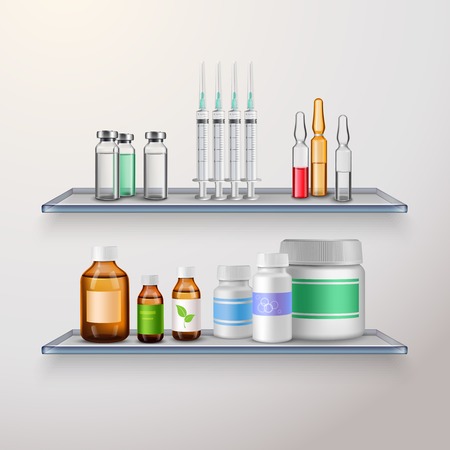Introduction to Cosmetic Bonding
Cosmetic bonding is a popular dental procedure designed to enhance the appearance of your teeth. Whether youre looking to fix minor imperfections or improve your overall smile, this technique offers a quick and effective solution. But when it comes to cosmetic bonding, should you try a DIY approach or seek professional treatment? Understanding the basics of cosmetic bonding can help you make an informed decision.
What Is Cosmetic Bonding?
Cosmetic bonding is a procedure where a tooth-colored resin is applied to the surface of your teeth to correct imperfections such as chips, cracks, discoloration, or gaps. The material is shaped and polished to blend seamlessly with your natural teeth, providing an improved and more uniform look.
Why Do People Choose Cosmetic Bonding?
Many people opt for cosmetic bonding because it is:
- Affordable: Compared to veneers or crowns, bonding is a cost-effective solution.
- Quick: The procedure usually takes less than an hour per tooth.
- Minimally Invasive: Unlike other dental treatments, bonding typically doesn’t require significant enamel removal.
- Effective for Minor Issues: It’s great for fixing small imperfections without extensive procedures.
DIY vs. Professional Cosmetic Bonding
If youre considering cosmetic bonding, you might be wondering whether you should try a DIY method or seek professional treatment. Below is a comparison of both options:
| DIY Cosmetic Bonding | Professional Cosmetic Bonding | |
|---|---|---|
| Cost | Lower upfront cost | Higher cost but long-lasting results |
| Durability | Might not last long | Stronger and more durable |
| Aesthetic Quality | Might not match natural teeth perfectly | Blends seamlessly with natural teeth |
| Risk Factor | Poor application can cause damage | Dentist ensures proper application and safety |
| Lifespan | Might need frequent touch-ups | Can last several years with proper care |
The choice between DIY and professional bonding depends on factors like budget, desired results, and risk tolerance. While DIY kits may seem convenient and affordable, they often lack the durability and precision of professional treatments.
2. DIY Cosmetic Bonding: Pros and Cons
With the rise of at-home beauty solutions, DIY cosmetic bonding kits have become increasingly popular. These kits promise a quick and affordable way to enhance your smile without the need for a professional appointment. But are they really worth it? Let’s take a closer look at the advantages and potential downsides.
Why DIY Cosmetic Bonding Is Appealing
Many people are drawn to DIY bonding kits because of their accessibility and affordability. Unlike professional treatments, which can be costly, at-home options offer a budget-friendly alternative. Plus, they allow users to fix minor imperfections without scheduling multiple dentist visits.
Key Benefits of DIY Bonding Kits
- Affordability: DIY kits cost significantly less than professional treatments.
- Convenience: No need for dentist appointments—you can apply them at home.
- Quick Fix: Great for minor cosmetic issues like small chips or gaps.
The Risks and Downsides of DIY Bonding
While the idea of saving money and time is appealing, there are several risks associated with DIY cosmetic bonding. Without professional expertise, mistakes can lead to more harm than good.
Potential Drawbacks of At-Home Bonding
| Concern | Description |
|---|---|
| Lack of Durability | DIY materials may not be as strong as those used by professionals, leading to frequent repairs. |
| Poor Aesthetic Results | Mismatched colors or improper application can make teeth look unnatural. |
| Possible Damage | If not applied correctly, DIY bonding can harm enamel or cause irritation. |
| No Professional Guidance | Dentists tailor treatments to individual needs—something DIY kits can’t offer. |
Is DIY Bonding Right for You?
If you’re looking for a temporary fix for a minor imperfection, an at-home bonding kit might be an option. However, for long-term results and better aesthetics, consulting a professional is always recommended. Understanding both the benefits and risks will help you make the best decision for your smile.

3. Professional Cosmetic Bonding: What to Expect
When it comes to cosmetic bonding, choosing a professional treatment can make a significant difference in terms of durability, aesthetics, and safety. Unlike DIY options, professional bonding is performed by a trained dentist who ensures that the materials used are high-quality and applied correctly for long-lasting results.
Durability: Long-Lasting Results
Professional bonding is designed to be more durable than at-home solutions. Dentists use strong composite resins that are properly cured and bonded to your teeth using advanced techniques. This ensures that the bonding lasts for several years with proper care.
Aesthetics: A Natural Look
One of the biggest advantages of professional bonding is its natural appearance. A dentist carefully matches the resin color to your existing teeth, ensuring a seamless blend. Additionally, they can shape and polish the bonded area for a smooth and realistic finish.
Safety: A Professional Touch
Unlike DIY bonding kits, which may not provide the best adhesion or safest materials, professional treatments prioritize your dental health. A dentist will thoroughly clean and prepare your tooth before applying the bonding material, reducing the risk of damage or infection.
Comparison: DIY vs. Professional Bonding
| Factor | DIY Bonding | Professional Bonding |
|---|---|---|
| Durability | Tends to wear out quickly | Lasts several years with proper care |
| Aesthetic Quality | Might not match natural teeth perfectly | Custom-matched for a seamless look |
| Application Safety | Poor adhesion and potential damage | Applied by a trained professional for safety |
| Cost | Lower upfront cost but may require frequent touch-ups | Higher initial investment but longer-lasting results |
4. Comparing Costs: DIY vs. Professional
When considering cosmetic bonding, cost is often a major factor in deciding between a DIY approach and seeking professional treatment. While DIY solutions may seem like a budget-friendly option upfront, it’s important to weigh both the initial costs and long-term expenses.
Upfront Costs
DIY cosmetic bonding kits are widely available online and in stores, typically costing between $20 and $100. These kits usually include bonding material, application tools, and instructions. However, they lack the precision and durability of professional treatments.
On the other hand, professional dental bonding performed by a licensed dentist can range from $300 to $600 per tooth. The higher cost reflects the expertise of the dentist, high-quality materials, and the assurance of a safe and effective procedure.
| Option | Estimated Cost Per Tooth | Whats Included |
|---|---|---|
| DIY Bonding Kit | $20 – $100 | Bonding material, basic tools, instructions |
| Professional Cosmetic Bonding | $300 – $600 | Expert application, durable materials, customized fit |
Long-Term Costs and Maintenance
While DIY bonding is cheaper initially, it often requires frequent touch-ups or replacements due to lower-quality materials and improper application. Poorly applied bonding can wear down quickly or even damage natural teeth, leading to additional dental costs.
Professional bonding lasts significantly longer—typically 5 to 10 years with proper care. Dentists use high-quality composite resin that bonds securely to teeth, minimizing the risk of breakage or frequent repairs.
Cost Considerations Over Time
- DIY Bonding: May need frequent reapplication, increasing costs over time.
- Professional Bonding: Higher initial investment but fewer repairs and longer-lasting results.
- Potential Dental Issues: Improper DIY application can lead to tooth damage, requiring costly professional correction later.
Which Option Saves More Money in the Long Run?
If you’re looking for a quick fix or temporary solution, DIY bonding may seem appealing. However, if you want a durable and aesthetically pleasing result without constant maintenance, professional bonding is often the better financial decision in the long run.
The key takeaway is that while DIY options may appear more affordable at first glance, professional cosmetic bonding offers greater longevity and fewer complications—potentially saving money over time by reducing the need for frequent touch-ups or corrective procedures.
5. Safety and Effectiveness: Which One is Better?
When it comes to cosmetic bonding, safety and effectiveness are two of the most important factors to consider. While DIY bonding kits may seem like a cost-effective option, they come with potential risks that could impact both your dental health and the longevity of the results. On the other hand, professional cosmetic bonding offers expert application and higher-quality materials. Let’s take a closer look at how these two approaches compare.
Health Risks: DIY vs. Professional
One major concern with DIY bonding is the risk of improper application. Many over-the-counter kits do not provide professional-grade materials or guidance from a trained dentist. This can lead to poorly bonded teeth, irritation, or even long-term damage if applied incorrectly.
Professional cosmetic bonding, however, is performed by an experienced dentist who ensures that the materials used are safe and properly bonded to your teeth. This reduces the chances of complications such as infections, gum irritation, or uneven application.
Longevity: How Long Do They Last?
The durability of cosmetic bonding depends largely on the quality of materials and the skill of application. Below is a comparison of how long each option typically lasts:
| Type | Average Lifespan | Main Factors Affecting Durability |
|---|---|---|
| DIY Bonding | A few months to 1 year | Poor adhesion, lower-quality materials, improper application |
| Professional Bonding | 3 to 10 years | High-quality composite resin, expert application, proper maintenance |
Overall Effectiveness: Which One Delivers Better Results?
If you’re looking for quick fixes for minor imperfections, DIY bonding might seem like a convenient choice. However, because it lacks professional precision, the results are often less natural-looking and may not blend seamlessly with your existing teeth.
A professional cosmetic bonding procedure ensures that your teeth are carefully shaped and color-matched for a more natural appearance. Additionally, dentists use stronger bonding agents that provide better adhesion and longer-lasting results.
6. Final Verdict: Which Option is Right for You?
Choosing between DIY and professional cosmetic bonding depends on several factors, including your personal needs, budget, and risk tolerance. Both options have their pros and cons, so it’s important to evaluate which one aligns best with your situation.
Factors to Consider
1. Budget
If youre on a tight budget, DIY bonding might seem like an appealing choice since it is significantly cheaper than professional treatment. However, keep in mind that lower costs may come with higher risks and a shorter lifespan for the bonding material.
| Option | Estimated Cost | Durability |
|---|---|---|
| DIY Cosmetic Bonding | $20 – $100 | A few weeks to months |
| Professional Cosmetic Bonding | $300 – $600 per tooth | 5-10 years or more |
2. Risk Tolerance
If you’re comfortable experimenting with temporary solutions and minor imperfections, DIY bonding could be an option for you. However, if you want long-lasting results without worrying about potential mistakes or damage to your teeth, professional bonding is the safer choice.
3. Complexity of the Procedure
If you need minor touch-ups or a quick aesthetic fix, DIY kits might be sufficient. But if you require significant cosmetic improvements or have underlying dental issues, its best to consult a professional to avoid complications.
4. Desired Results
If you want a natural-looking finish that blends seamlessly with your teeth, professional bonding is the way to go. Dentists use high-quality materials and precise techniques to ensure durability and aesthetics, whereas DIY kits may not provide the same level of customization.
The Bottom Line
If youre looking for a quick, inexpensive fix for minor cosmetic concerns and are willing to accept some risks, DIY bonding might work for you. However, if you want a long-lasting solution with expert precision and minimal risk, investing in professional cosmetic bonding is the better option.

